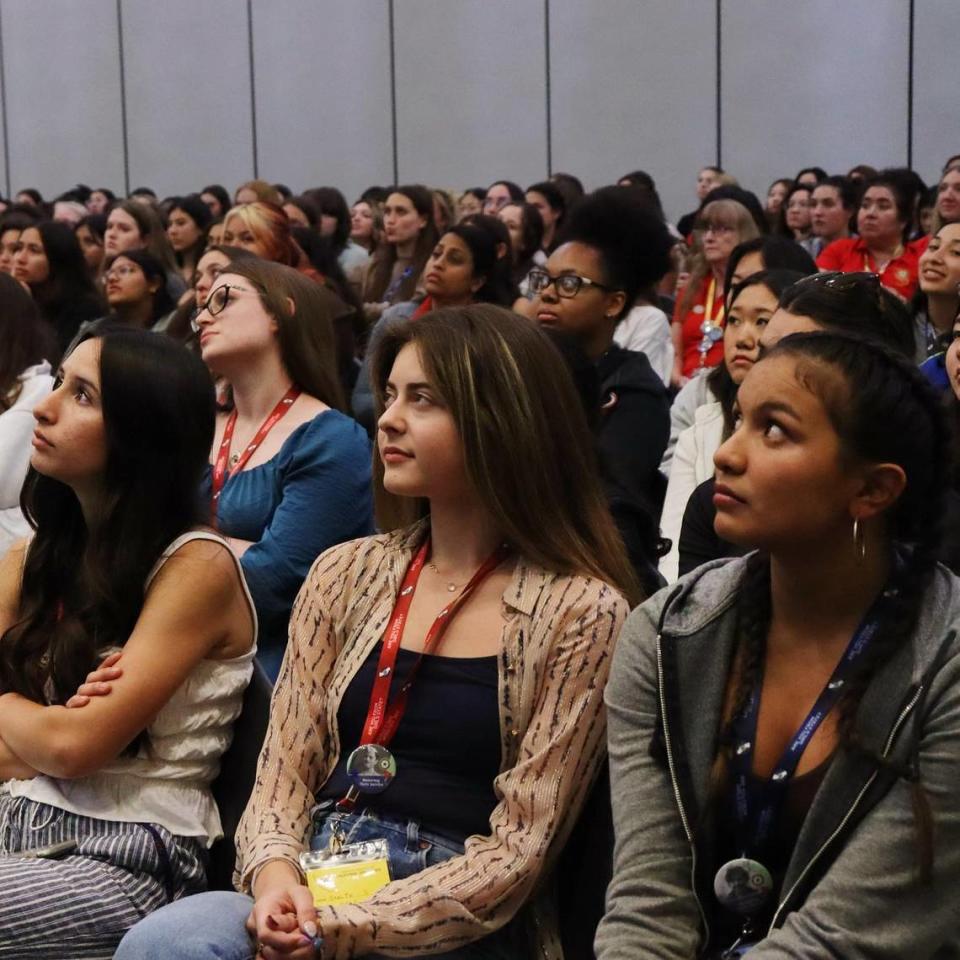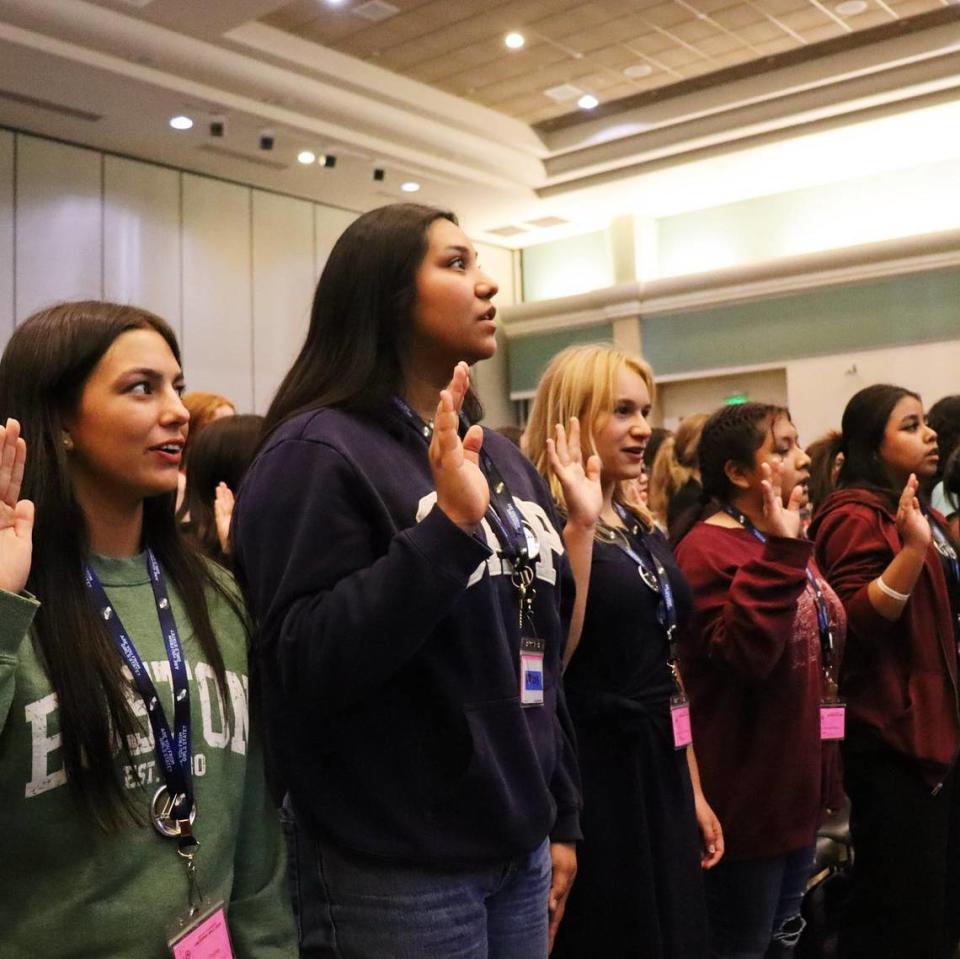At summer camp, girls like me learned firsthand the barriers women face in politics | Opinion
This summer, I was among the first class of girls to be included in California Boys and Girls State (formerly known as Boys State). Thanks to legislation passed in 2021, the “Boys State” program is now coed, while Girls State still exists as a standalone program.
During the week-long California Boys and Girls State program, incoming high school seniors from across California gather at Sacramento State to simulate a government. We held mock elections for the state senate, state house of representatives, and the coveted spot of governor. We also constructed laws on the city, county and state level.
Opinion
I was elected to be a city senator, and I learned a lot about the political process and about writing and presenting bills. Most importantly, I learned about the importance of having women in government. With the program being coed, there were a variety of differing perspectives on political issues we discussed, such as protecting the environment or developing technology. Our counselors, who were participants in previous years, reported that the camp was more productive and calmer with the inclusion of women.
However, as the camp progressed, an issue loomed over the heads of the female delegates: Participating girls in the program would not be able to proceed to Boys Nation.
Boys Nation is an extension of the program that takes the two best performing boys in each state’s respective program and brings them to a second version of the mock government camp, held in Washington, D.C. However, because California is the first state to become a coed Boys and Girls State, girls who attend the program are still not eligible to be sent to Boys Nation.
In the mock senate we created, we worked together to construct a plan to change this. We considered boycotting the event in order to capture attention on the national level. The problem, however, is that California’s youth voice would be removed altogether and replaced with two other randomly selected delegates. We considered sending only one representative of California to still send a strong message while avoiding our voices being drowned out altogether. But in the end, we decided to send two delegates to fight for the inclusion of girls at Boys Nation.
I commend the Californian American Legion for including girls in this program and urge the American Legion as a whole to follow in California’s steps.
This subject is under debate, both logistically and ideologically, within the Legion, but I hope that the success of our Boys and Girls State will provide evidence of the potential of the program. In the real world, men no longer dominate all government positions, and women no longer stay out of politics (although much progress still has to be made).
Men and women are not separated in government, so why should they be separate in programs that simulate those same positions? These programs are the training ground for future politicians; we learn what risks to take, how others will respond and how to get along with each other. How can we expect men and women to be able to seamlessly cooperate with each other and get along in the future when they are separated in one of the only practices they receive before becoming politicians?
Integrating girls into Boys State programs across the country will better allow for politically motivated students to be prepared for their future careers in politics and help eliminate stereotypes or biases within politics, as future politicians will be exposed to more diverse perspectives.
Cady Winuk is a 17-year-old student at Pleasant Grove High School.




